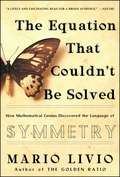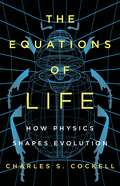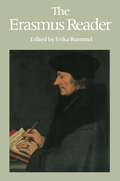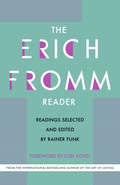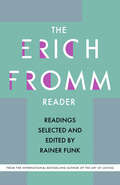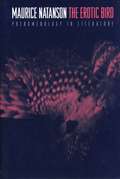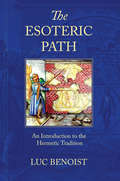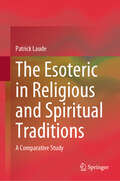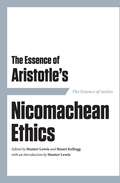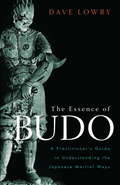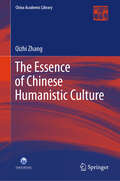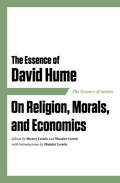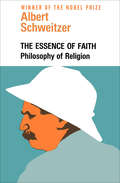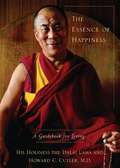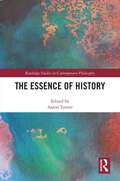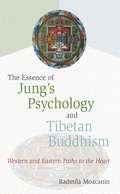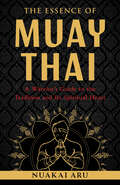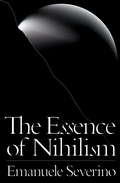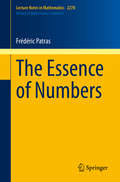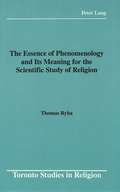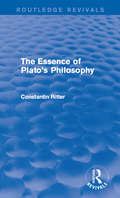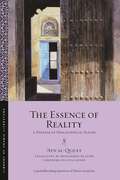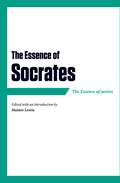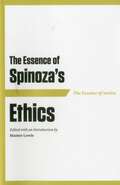- Table View
- List View
The Equation that Couldn't Be Solved: How Mathematical Genius Discovered the Language of Symmetry
by Mario LivioWhat do Bach's compositions, Rubik's Cube, the way we choose our mates, and the physics of subatomic particles have in common? All are governed by the laws of symmetry, which elegantly unify scientific and artistic principles. Yet the mathematical language of symmetry-known as group theory-did not emerge from the study of symmetry at all, but from an equation that couldn't be solved. For thousands of years mathematicians solved progressively more difficult algebraic equations, until they encountered the quintic equation, which resisted solution for three centuries. Working independently, two great prodigies ultimately proved that the quintic cannot be solved by a simple formula. These geniuses, a Norwegian named Niels Henrik Abel and a romantic Frenchman named Évariste Galois, both died tragically young. Their incredible labor, however, produced the origins of group theory. The first extensive, popular account of the mathematics of symmetry and order, The Equation That Couldn't Be Solved is told not through abstract formulas but in a beautifully written and dramatic account of the lives and work of some of the greatest and most intriguing mathematicians in history.
The Equations of Life: How Physics Shapes Evolution
by Charles S. CockellA groundbreaking argument for why alien life will evolve to be much like life here on EarthWe are all familiar with the popular idea of strange alien life wildly different from life on earth inhabiting other planets. Maybe it's made of silicon! Maybe it has wheels! Or maybe it doesn't. In The Equations of Life, biologist Charles S. Cockell makes the forceful argument that the laws of physics narrowly constrain how life can evolve, making evolution's outcomes predictable. If we were to find on a distant planet something very much like a lady bug eating something like an aphid, we shouldn't be surprised. The forms of life are guided by a limited set of rules, and as a result, there is a narrow set of solutions to the challenges of existence.A remarkable scientific contribution breathing new life into Darwin's theory of evolution, The Equations of Life makes a radical argument about what life can--and can't--be.
The Erasmus Reader
by Desiderius Erasmus Erika RummelCollected Works of Erasmus ... thoughtfully designed to include major statements of Erasmus on civility in individual morals, humanistic study and education, the Christian life, reform of the church, and the peaceful constraint of political force. It is to my mind the most comprehensive and penetrating anthology of Erasmus' writing, forcefully revealing his central values." - Charles Trinkaus, Emeritus Professor of History, University of Michigan 'Rummel's collection makes available readable translations of Erasmus' most original and influential works - the books that made him the intellectual conscience of his generation of scholars and the inspiration of many Reformers who took positions he did not accept. They reveal the biblical scholar, the humanist and literary theorist, and the social critic that Erasmus was, far more fully and vividly than any previous anthology.' - Anthony Grafton, Program in History of Science, Princeton University 'The high quality of the Toronto edition of the Collected Works of Erasmus has earned it a central place in the libraries of scholars around the world. The Erasmus Reader extends this impact to the carrels and desks of beginning and advanced students of Renaissance and Reformation history.' - Heiko A. Oberman, Director, Division for Late Medieval and Reformation Studies, University of Arizona
The Erich Fromm Reader
by Erich Fromm Rainer Funk Joel KovelFromm's basic idea was to look at the individual as a social being and to look at society as an ensemble of many individuals who have not only common ideas and convictions based on a common practice of life but also a common psychic structure. With his concept of "social character" he created a new interdisciplinary thinking presented in this reader. The Erich Fromm Reader exhibits the true genius of an original thinker in seeing the connections between overlapping knowledge from many different fields. Here interdisciplinarity is not only a lip service but the impact of Erich Fromm's unique social psychological notion.
The Erich Fromm Reader: Readings Selected and Edited by Rainer Funk
by Erich Fromm&“Fromm crossed the boundaries of traditional disciplines to expound his view on the alienation of man in an increasingly technological world.&” —Newsweek Erich Fromm&’s basic idea was to look at the individual as a social being, and to look at society as an ensemble of many individuals who have not only mutual ideas and convictions based on a common practice of life, but also a shared psychic structure. With his concept of &“social character,&” Fromm created a new interdisciplinary thinking presented in this compendium.The Erich Fromm Reader exhibits the true genius of an original thinker in seeing the connections between overlapping knowledge from many different fields. Here, interdisciplinarity is not only a lip service but the impact of Erich Fromm&’s unique social psychological notion.
The Erotic Bird: Phenomenology in Literature
by Maurice NatansonHow does literature illuminate the way we live? Maurice Natanson, a prominent champion of phenomenology, draws upon this method's unique power to show how fiction can highlight aspects of experience that are normally left unexamined. By exploring the structure of the everyday world, Natanson reveals the "uncanny" that lies at the core of the ordinary. Phenomenology--which involves the questioning of that which we usually take for granted--is for Natanson the essence of philosophy.Drawing upon his philosophical predecessors Edmund Husserl, Alfred Schutz, and Jean-Paul Sartre, Natanson paves his own way with stories and examples that themselves bear witness to how phenomenology occurs in literature. In considering such works as Samuel Beckett's Waiting for Godot, Thomas Mann's The Magic Mountain, and Franz Kafka's The Metamorphosis, Natanson shows how literature opens us to the domain of possibility and how metaphor offers philosophical power when we think about freedom and change.This book, written by one of the twentieth century's leading phenomenologists, will interest students in philosophy and in literature. They will value the work particularly for its clarification of concepts and terms that frequently emerge in the contemporary intellectual climate.
The Esoteric Path: An Introduction to the Hermetic Tradition
by Luc BenoistThe Estoric path firmly situates that path in its appropriate, traditional context, and point him or her in the right direction, away from the time-and soul-consuming attractions of those 'paths' that exhibit 9in the author's word) 'the confusion between the spiritual and the psychic...the identification of the spiritual with what is most inferior in the psyche, the identification of religion with magic, totemism, and even sorcey, the popular dissemination of pseudo- or counter-initiatic rituals.'
The Esoteric in Religious and Spiritual Traditions: A Comparative Study
by Patrick LaudeThis book offers a comparative examination of the esoteric dimension across diverse religions, including Buddhism, Christianity, Hinduism, and Islam. It seeks to answer the question of whether the concept of the esoteric can be applied across traditions and explores intersections, convergences, and differences in its use and presence therein. The book provides new avenues for research by moving beyond the study of Western esotericism and examining how the category of the esoteric can be applied in the contexts of Abrahamic faiths and Asian traditions. The book is organized into six centers of reflection, including the esoteric dialectics of hiding and revealing, the claim of esoteric traditions to restore wholeness and provide a comprehensive understanding of reality, the character of immediacy and directness, the intrinsic esoteric distinction between two truths, and the non-dualistic leanings of esoteric schools in terms of the unity of reality and the subjective immanence of an all-embracing Divine Selfhood. Overall, the book provides a comprehensive phenomenology of the esoteric in religions. It will be of interest to researchers and students of theology and religious studies.
The Essays: A Selection
by Michel De Montaigne M. A. ScreechTo overcome a crisis of melancholy after the death of his father, Montaigne withdrew to his country estates and began to write. In the highly original essays that resulted he discussed themes such as fathers and children, conscience and cowardice, coaches and cannibals, and, above all, himself. On Some Lines of Virgil opens out into a frank discussion of sexuality and makes a revolutionary case for the equality of the sexes. In On Experience Montaigne superbly propounds his thoughts on the right way to live, while other essays touch on issues of an age struggling with religious and intellectual strife, with France torn apart by civil war. These diverse subjects are united by Montaigne's distinctive voice - that of a tolerant man, sceptical, humane, often humorous and utterly honest in his pursuit of the truth. M. A. Screech's distinguished translation fully retains the light-hearted and inquiring nature of the essays. In his introduction, he examines Montaigne's life and times, and the remarkable self-portrait that emerges from his works.
The Essence of Aristotle's Nicomachean Ethics
by Hunter Lewis & Stuart KelloggAxios Press&’s Essence of . . . series takes the greatest works ever written in the field of practical philosophy and pares them down to their essence. We select the best passages—the ones that are immediately relevant to us today, full of timeless wisdom and advice about the world and how best to live our lives—and leave behind the more obscure or less important bits. Our selections are not isolated: they flow together to create a seamless work that will capture your interest and attention from page one. And we provide useful notes and a solid introduction to the work. Aristotle&’s Nicomachean Ethics is widely considered one of the most important historical philosophical works. Indirectly it was critical in the development of all modern philosophy, not to mention European law and theology. One might say that Aristotle was really the first social scientist. Like Machiavelli, he closely observed how people actually behaved, but unlike Machiavelli, he did so for the purpose of teaching virtue. Moreover, Aristotle formulated a unique way of looking at the good life—one that requires us to look for a mean between extremes. The motto &“Moderation in all things&” is completely Aristotelian, though he would probably have added &“. . . including moderation!&”Now with linking endnotes and index.
The Essence of Budo: A Practitioner's Guide to Understanding the Japanese Martial Ways
by Dave LowryThe study of budo, or the Japanese martial arts for self-cultivation, is a lifelong path toward perfection of character. Here, Dave Lowry, a sword master who has practiced and taught budo for over forty years, addresses the myriad issues, vagaries, and inconsistencies that arise for students of karate-do, judo, kendo, kenjutsu, aikido, and iaido as their training develops. He examines such questions as: * What is the relationship between the student and teacher, and what should one expect from the other? * What does rank really mean? * How do you correctly and sensitively practice with someone less experienced than you? * What does practice look like as one ages? * Why do budo arts put such an emphasis on etiquette? * And many others Lowry also gives practical advice for beginning and advanced students on improving structural integrity in posture and movement, focusing under stress, stances and preparatory actions before engaging with an opponent, and recognizing a good teacher from a bad one.
The Essence of Chinese Humanistic Culture (China Academic Library)
by Qizhi ZhangThis book presents a comprehensive and inclusive exploration of the core essence of Chinese civilization and its deeply-rooted humanistic values. It goes beyond the surface and delves into the philosophical, ethical, and historical aspects, aiming to unravel the profound characteristics and spiritual significance of Chinese culture. Taking an interdisciplinary approach, the book carefully examines classical texts, traditional values, moral principles, and cultural legacies that have shaped the Chinese humanistic spirit throughout history. By doing so, it offers readers a deep understanding of the rich cultural heritage that China possesses. One of the highlights of the book is its exploration of the relevance of Chinese cultural traditions and values in today’s society. It sheds new light on the significance of the Chinese humanistic spirit in the modern world, demonstrating its enduring importance and its potential to address contemporary issues.
The Essence of David Hume: On Religion, Morals, and Economics
by Henry Lewis, Hunter LewisAxios's Essence of . . . Series takes the greatest works of practical philosophy and pares them down to their essence. Selected passages flow together to create a seamless work that will capture your interest from page one.This newest volume in the series is dedicated to David Hume who is ranked as one of the greatest Western philosophers and economists. You will find three main sections on Hume (Religion, Morals, and Economics) as well as a section on his life.
The Essence of Faith: Philosophy of Religion
by Albert SchweitzerThe Nobel Peace Prize–winning doctor, theologian, and missionary explores the essence of faith in this masterful early work on Kantian metaphysics. Famous for his medical missionary work in what is now the West African country of Gabon, Albert Schweitzer was an accomplished theologian, philosopher, and international bestselling author. While studying for his PhD at the Sorbonne, Schweitzer developed his views on theology through an analysis of Immanuel Kant&’s philosophy of religion. In The Essence of Faith, Schweitzer explores Kantian ideas to arrive at an inspiring meditation on God, faith, and the limits of human understanding. Both an accessible introduction to Schweitzer&’s theology and a strikingly original approach to Kant&’s writing and thought, The Essence of Faith is a slim volume of profound ideas.
The Essence of Happiness
by Dalai Lama Howard C CutlerThe essence of the iconic book The Art of Happiness distilled into a beautiful new format. The Dalai Lama inspired millions around the world with his wisdom and compassion in The Art of Happiness. Now, in The Essence of Happiness, moving insights from His Holiness are gathered in an elegantly designed keepsake book that makes for a handy and accessible medium for that wisdom. Offering sage advice on defeating day-to-day depression, anxiety, anger, jealousy, and other emotions that get in the way of true happiness, the pages of The Essence of Happiness contain transforming reflections on how to overcome suffering and obstacles to create a fulfilled, joyous life. With its new package, ideal for taking anywhere, The Essence of Happiness is poised to become the handbook for living.
The Essence of History (Routledge Studies in Contemporary Philosophy)
by Aaron TurnerThis book brings together historical thinkers from diverse disciplinary backgrounds to offer original interpretations of the essence of history. It addresses why the essence of history itself cannot be so easily thematised or conceptualised.Restating the question of the essence of history is necessary as it has been largely forgotten today. Since antiquity, history has been inextricably bound up with the problem of truth. Contemporary philosophy of history and historiography have branched out in many different directions. This complexity has made it nearly impossible for historical thinkers to engage outside of their own field. The relentless advancement of historical thought has almost completely neglected the question of the essence of history. The chapters in this volume respond to questions such as: What is history? What, in the “progress” of historical thought from antiquity to modernity, did we lose along the way? And what does it mean, if it means anything at all, to have history, to be historical?The Essence of History will be of interest to scholars and graduate students working in philosophy of history, historical theory and historiography, and ancient history.
The Essence of Jung's Psychology and Tibetan Buddhism
by Radmila MoacaninThe Essence of Jung's Psychology and Tibetan Buddhism cuts to the heart of two very different yet remarkably similar traditions. The author touches on many of their major ideas: the collective unconscious and karma, archetypes and deities, the analyst and the spiritual friend, and mandalas. Within Tibetan Buddhism she focuses on tantra and relates its emphasis on spiritual transformation, also a major concern of Jung. This expanded edition includes new material on the integration of the two traditions, and the importance of these paths of the heart in today's unsteady world.
The Essence of Muay Thai: A Warrior's Guide to the Tradition and Its Spiritual Heart
by Nuakai AruA fascinating dive into the little-known spiritual dimensions of the popular martial art of Muay Thai, as well as its rich history, traditions, and esoteric practices.Muay Thai, or Thai boxing, is considered by many to be the most effective martial art, and its popularity has only been heightened by its dominance in the Mixed Martial Arts (MMA) arena. But one little-known aspect of this potent self-defense system is its deep spiritual roots and meditative practices.In The Essence of Muay Thai, Nuakai Aru, a Muay Thai master and longtime practitioner of various other martial arts, offers a fascinating historical and philosophical view of Muay Thai—along with his personal insights and experiences on the path.Muay Thai—originally known in its purest fighting form as Muay Boran—was developed as a military fighting system during the 13th century to protect the Sukhothai Kingdom, the first independent—and Buddhist—Thai kingdom. Buddhism infused every aspect of life and society—from governance, to art and architecture, to military strategy—and the view of the Noble Warrior was central in Muay Thai and Muay Boran. The Muay Thai warriors were tasked with protecting the kingdom and its rulers using skillful, tactical, and enlightened action. Aru is a compelling guide into the enigmatic world of Thai martial arts—its history, legend, lore, esoteric practices, and spiritual aspects—and he shares his own fascinating personal story of physical and emotional healing through Muay Thai.
The Essence of Nihilism
by Alessandro Carrera Emanuele Severino Giacomo Donis Ines TestoniA groundbreaking classic of contemporary philosophy for the first time in English translationBetween 1961 and 1970, Emanuele Severino was subjected to a thorough investigation by the Vatican Inquisition. The "fundamental incompatibility" identified between his thought and Christian doctrine ejected him from his position as Professor of Philosophy at the Catholic University in Milan. The Essence of Nihilism, published in 1972, was the first book to follow his expulsion, and it established Severino's preeminent position within the the constellation of contemporary philosophy.In this groundbreaking and classic book--now for the first time available in English--Severino reinterprets the history of Western philosophy as the unfolding of "the greatest folly," that is, of the belief that "things come out of nothing and fall back into nothing." According to Severino, such a typically Western understanding of reality has resulted in a conviction that there is a radical "nothingness" to existence. In turn, this justifies the treatment of the world as an object of exploitation, degradation and destruction. To move beyond Western nihilism, suggests Severino, we must first of all "return to Parmenides." Joining forces with the most venerable of Greek philosophers, Severino confutes nihilism's "path of night", and develops a new philosophy grounded on the principle of the eternity of reality and of every single existent thing.From the Trade Paperback edition.
The Essence of Numbers (Lecture Notes in Mathematics #2278)
by Frédéric PatrasThis book considers the manifold possible approaches, past and present, to our understanding of the natural numbers. They are treated as epistemic objects: mathematical objects that have been subject to epistemological inquiry and attention throughout their history and whose conception has evolved accordingly. Although they are the simplest and most common mathematical objects, as this book reveals, they have a very complex nature whose study illuminates subtle features of the functioning of our thought. Using jointly history, mathematics and philosophy to grasp the essence of numbers, the reader is led through their various interpretations, presenting the ways they have been involved in major theoretical projects from Thales onward. Some pertain primarily to philosophy (as in the works of Plato, Aristotle, Kant, Wittgenstein...), others to general mathematics (Euclid's Elements, Cartesian algebraic geometry, Cantorian infinities, set theory...). Also serving as an introduction to the works and thought of major mathematicians and philosophers, from Plato and Aristotle to Cantor, Dedekind, Frege, Husserl and Weyl, this book will be of interest to a wide variety of readers, from scholars with a general interest in the philosophy or mathematics to philosophers and mathematicians themselves.
The Essence of Phenomenology and Its Meaning for the Scientific Study of Religion
by Thomas RybaReligious studies is rife with confusion over what the phenomenology of religion is. Conventional approaches dwell on the dissimilarity of the meanings of 'phenomenology' and 'phenomenology of religion' and ignore their synonymy. The purpose of this book is to challenge this trend by examining seven significant historical examples of philosophical phenomenology in order to develop a synthetic definition of 'phenomenology' which will both resolve the perceived conflicts in meaning and lead to a useful augmentation of religious methodology.
The Essence of Plato's Philosophy (Routledge Revivals)
by Constantin RitterThis book, first published in English in 1933, provides a detailed analysis of the life and concepts of the Greek philosopher Plato. The Essence of Plato’s Philosophy explores epistemology and ontology, the philosophy of nature, ethics and the philosophy of the state, and aesthetics and religion. This book will be of interest to students of philosophy.
The Essence of Reality: A Defense of Philosophical Sufism (Library of Arabic Literature)
by ʿAyn al-QuḍātA groundbreaking exposition of Islamic mysticism The Essence of Reality was written over the course of just three days in 514/1120, by a scholar who was just twenty-four. The text, like its author ʿAyn al-Quḍāt, is remarkable for many reasons, not least of which that it is in all likelihood the earliest philosophical exposition of mysticism in the Islamic intellectual tradition. This important work would go on to exert significant influence on both classical Islamic philosophy and philosophical mysticism. Written in a terse yet beautiful style, The Essence of Reality consists of one hundred brief chapters interspersed with Qurʾanic verses, prophetic sayings, Sufi maxims, and poetry. In conversation with the work of the philosophers Avicenna and al-Ghazālī, the book takes readers on a philosophical journey, with lucid expositions of questions including the problem of the eternity of the world; the nature of God’s essence and attributes; the concepts of “before” and “after”; and the soul’s relationship to the body. All these discussions are seamlessly tied into ʿAyn al-Quḍāt’s foundational argument—that mystical knowledge lies beyond the realm of the intellect.An English-only edition.
The Essence of Socrates
by Hunter LewisSocrates is important to us for many reasons. First, he recognized the value of logic and showed us how to use it to discover truth. Second, he led an exemplary and courageous life which cannot fail to inspire anyone who reads about it. His calm and eloquent defense of himself during the final trial for heresy, which ended in his condemnation and execution, are among the most famous passages in world literature. No one, apart from the great religious teachers, has had a more profound impact on human thought. Socrates himself wrote nothing. Fortunately his pupils Plato and Xenophon recorded his sayings for posterity. Indeed the connection between Socrates and Plato is so close that this little book could alternatively been titled The Essence of Plato. The latter&’s philosophical treatises did not survive, so that all that remains to us is the Dialogues which mostly recount the life of Socrates.Axios Press&’s Essence of . . . series takes the greatest works ever written in the field of practical philosophy and pares them down to their essence. We select the best passages—the ones that are immediately relevant to us today, full of timeless wisdom and advice about the world and how best to live our lives—and leave behind the more obscure or less important bits. Our selections are not isolated: they flow together to create a seamless work that will capture your interest and attention from page one. And we provide useful notes and a solid introduction to the work.
The Essence of Spinoza's Ethics
by Hunter LewisAxios&’s Essence of . . . Series takes the greatest works of practical philosophy and pares them down to their essence. Selected passages flow together to create a seamless work that will capture your interest from page one.Goethe: " [In his] Ethics ... , I found the serenity to calm my passions...."This new edition makes Spinoza's own words understandable by everyone.Now with linking index.
